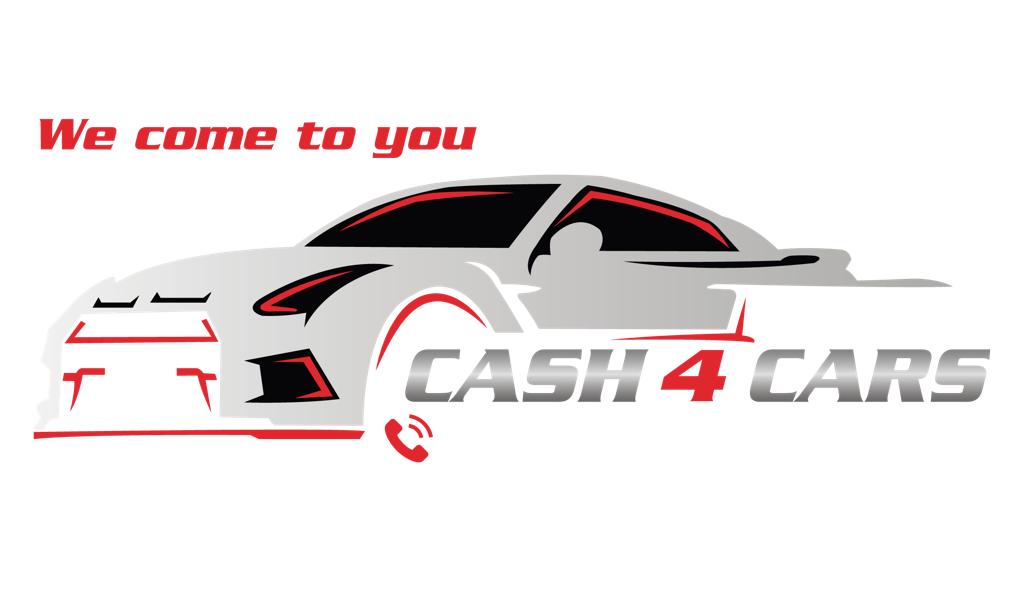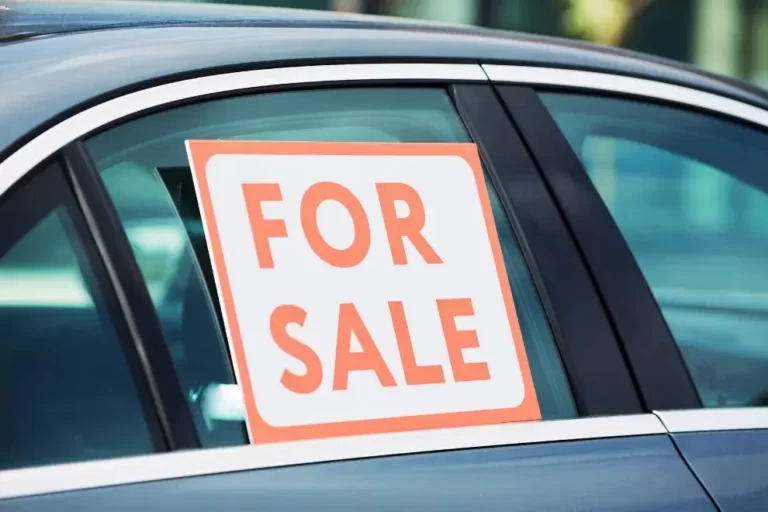Things To Remember When Selling Your Car
Parting with your car can be an emotional experience as you say farewell to a trusted companion. The time has come for someone else to take the wheel, and ensuring a smooth transaction is paramount. To achieve this, consider these essential tips when selling your car.
The car selling process demands meticulous planning and attention to detail, from determining the right price and marketing efficiently to finalising the transaction securely and understanding the steps to follow guarantees satisfaction for both parties involved. Continue reading to discover the necessary steps!
Set The Right Price
Determining the right price for your used car is crucial to obtaining a good return on your investment. However, this can be challenging, as numerous factors contribute to the car’s sale value. Car prices can fluctuate significantly due to age and condition, making it essential to research current market trends to understand where your vehicle stands in comparison. Negotiation tactics also impact the final sale price, mainly when dealing with private buyers or dealerships.
It’s advisable to start with a higher price and negotiate downward if the potential buyer is unwilling to meet your initial offer. This approach works best with private sellers who may have yet to conduct their research before negotiating; dealers will likely be prepared with a lower figure than your initial request. Therefore, being well-informed about current pricing trends is beneficial.
When negotiating the price, consider all aspects of the car beyond its general condition: features like mileage and recent upgrades should significantly influence negotiations. These aspects add value and may even increase your asking price depending on their desirability, among other drivers. Utilise any advantages you have during discussions – whether knowledge of past sales data or experience negotiating deals – to help achieve your desired outcome without conceding too much on pricing.
Get An Accurate Appraisal
Having established a rough estimate for your car’s value, it’s essential to secure a precise appraisal. A professional appraiser can confirm the appropriate pricing and suggest ways to increase its market value. Before this stage, gather all pertinent documentation related to your vehicle, such as ownership papers and maintenance records. Moreover, if any damage exists to the body or mechanical components, review the repair history before seeking an appraisal.
Keep these pointers in mind when having your car appraised:
- Organise all necessary paperwork in advance
- Ensure your vehicle is spotless, both internally and externally
- Address any concerns or queries about the vehicle’s condition
- Examine local listings to compare prices of similar vehicles
Before choosing an appraiser, investigate reviews or seek recommendations from acquaintances who have recently sold their cars. If feasible, find someone with a background in automotive sales, as they can offer valuable insights into pricing strategies and negotiation techniques. By taking these measures beforehand, you’ll be well-equipped for the actual sale of your vehicle.
Market Your Car Effectively
To successfully sell your car, effective marketing is crucial. One method involves online advertising using vehicle-specific websites and apps like Craigslist and Autotrader. When creating your listing on these platforms, include numerous clear photos from various angles and comprehensive information about features and maintenance history. Additionally, examine listings for similar vehicles within the same price range or condition to accurately determine a reasonable asking price.
Consider placing ads in local newspapers or other print publications in your region. You might also distribute flyers at busy intersections or parking lots containing basic information such as make/model, year, and contact details – ensure you post them legally! This gives individuals who may not utilise digital platforms easy access to your car’s components.
Convey your seriousness about selling by being well-prepared when meeting potential buyers in person. Have all relevant ownership documents ready for inspection and respond to questions honestly and transparently. Remember to highlight any unique features or noteworthy aspects of the vehicle.
Learn The Laws And Regulations
If you’re looking to sell your car, familiarising yourself with the sale rules is crucial. Understanding the paperwork and researching local laws can ensure compliance and avoid future legal issues. There’s much to consider, from DMV regulations to vehicle inspection requirements. Stay informed about all the necessary steps for a successful sale. Remember to consult your state’s DMV website and adhere to any applicable local laws. Lastly, retain all documents related to the sale for future reference, if needed.
Know The Rules Of Sale
Selling your car can be challenging, but adhering to the sale rules will enable you to maximise your vehicle’s value. Some helpful tips to ensure a smooth transaction are.
First, assess all offers meticulously and only accept them with prior research.
Examine all paperwork, including titles and bills of sale, to guarantee everything is in order when finalising the transaction.
Finally, consult local authorities for any specific regulations or laws concerning car sales in your region; this can prevent potential complications later on. Keep in mind: addressing these details now significantly simplifies the process later.
Understand The Paperwork
Once you’ve assessed offers and conducted thorough research, it’s crucial to familiarise yourself with the necessary paperwork. Before signing a bill of sale or transferring titles, consult local authorities for specific regulations concerning car sales in your area.
As these requirements may differ between states, stay informed about the relevant regulations. Moreover, investigate options such as extended warranties or protection plans that could safeguard both parties involved in the transaction.
Doing so ensures all aspects are considered when exchanging money and handing over keys. Being well-informed in advance streamlines the process and provides peace of mind.
Research Local Laws
Understanding local laws and regulations is crucial when selling a car. Before reviewing paperwork or discussing terms with the buyer, conduct thorough research on the requirements in your area. Each state has distinct stipulations regarding titles and bills of sale, so ensure you’re well-informed before proceeding.
Being prepared with this knowledge can facilitate a smoother transaction for both parties. Additionally, consider optional protection plans or warranties for extra security. With proper due diligence, you can confidently ensure a seamless process!
Prepare For Test Drives
Now that you have familiarised yourself with the laws and regulations of selling a car, it’s time to prepare for test drives. Test drives can be an excellent way to showcase your car’s features and attract potential buyers. Before arranging any test drives, there are a few crucial steps.
First, collect all necessary documents, such as proof of ownership and maintenance records. These documents will reassure prospective buyers that they are investing in a dependable vehicle. Next, examine the fluid levels in your car, including oil, coolant, brake fluid, and transmission fluids, if applicable. This step ensures that everything functions optimally before taking to the road with another driver.
Furthermore, ensure tyres are correctly inflated and inspect brakes for wear or damage. Replacing outdated parts before scheduling test drive appointments is advisable to avoid appearing careless during the process. The last thing you want is a dissatisfied customer who feels deceived after their purchase due to a seemingly minor yet crucial issue.
- Collect all necessary documents, such as proof of ownership and maintenance records
- Examine fluid levels, including oil, coolant, brake, and transmission fluids (if applicable)
- Confirm tyres are correctly inflated and assess brakes for wear or damage
- Replace any outdated parts before arranging test drive appointments
- Guarantee the car functions smoothly before handing over the keys
Finalise The Deal Safely
When it comes to finalising the sale of your car, safety should always be a priority. Documenting the transaction is essential for both parties, and all legal requirements must be met. It’s important to understand any taxes that may come with selling your vehicle, as this can significantly impact the actual cost of the sale.
Start by ensuring all paperwork is in order; make sure you have copies of all documents related to the car, including registration details and service records.
Confirm receipt of payment before handing over possession of the car. Doing so helps protect you from potential legal issues down the line. Once these are checked off, ask for payment via check or electronic transfer, depending on what works best for the buyer and seller.
Provide a written bill of sale detailing information about the purchase, such as date and time, agreed-upon price, and description of the vehicle’s condition at the time of sale. This will help ensure both parties have an accurate record should any discrepancies arise after the sale’s completion.
Taking care when closing a deal like this helps prevent disputes from arising later on and avoids unnecessary headaches for everyone involved.
Conclusion
In conclusion, adequate preparation is essential when selling your car. A bit of extra effort ensures an optimal price and a secure transaction. Although it might seem like a lot of work, the peace of mind gained is well worth it. By following these tips, you can be confident in making a successful sale when the time arrives.
Frequently Asked Questions
Q: What do you need to remember when selling your car?
A: When selling your car, it’s important to remember to make sure you have all the relevant documents, such as your license and logbook. It’s also important to advertise your car correctly and ensure that the description of your vehicle is accurate. Additionally, you should confirm the car looks its best by cleaning it professionally or making any necessary repairs. Finally, remove any personal items before handing over the keys.
Q: What are some tips for selling a car privately?
A: If you plan on selling your car privately, there are several tips you should keep in mind. Firstly, it’s essential to ensure that all of the paperwork is up-to-date and that you have all relevant documents, such as the safety certificate and odometer reading. Secondly, ensure you advertise your car correctly with clear photographs and accurately describe its condition. Thirdly, be prepared for potential haggling from prospective buyers. Lastly, consider getting a professional car valuation for the best possible price.
Q: What are some of the ways to sell a used car?
A: There are several ways in which you can sell a used car; these include private sales (e.g., through online marketplaces or classified websites), trade-ins at dealerships (where they will buy the vehicle from you), or auction houses (which can help if you want to get rid of an old vehicle quickly). Additionally, specialised services may be available in certain areas, such as Queensland, allowing individuals to sell their cars online without needing to meet buyers face-to-face.
Q: Are there any important things I need when selling my car?
A: Yes – when selling your car, there are several essential things that you need to have ready beforehand. Firstly, make sure that all paperwork is up-to-date; this includes ensuring that the roadworthy certificate and odometer readings are accurate. Secondly, provide full disclosure about any issues with the vehicle so that buyers know exactly what they’re getting into. Thirdly, consider providing a copy of receipts for recent repairs or maintenance work done on your car.
Q: How do I go about advertising my car for sale?
A: When advertising a used car for sale, it’s essential to provide clear photographs and an honest description of its condition so potential buyers can get an accurate idea of what they’re looking at buying. Additionally, consider including details such as its model year and mileage so buyers can compare it against other vehicles on the market. Finally, when setting a price, start slightly higher than what you expect to receive so that prospective buyers can haggle down.
Q: What should I do after I have sold my car?
A: Following the sale of your vehicle, it is crucial to communicate for both parties to guarantee a smooth process. First, ensure that you and the buyer sign all necessary documents, such as transfer papers and receipt forms, and confirm that all payments are completed before handing over the keys or finalising the transaction. Second, notify insurance companies or motor registries to inform them of the change in ownership.
Q: What should I include when making my used car look better for sale?
A: When attempting to improve how a used vehicle looks before a sale, several steps can be taken; these include having it washed thoroughly inside and out and having any minor repairs made, such as replacing light bulbs or fixing broken trim pieces if possible. Additionally, consider giving it a wax coat if necessary and removing any personal items that may still be present inside.
Q: Is there anything else I should do before selling my second-hand car?
A: Before listing your second-hand vehicle for sale, it is highly recommended to get its value professionally assessed by either an appraiser or mechanic who specialises in cars similar to yours; this will help give potential buyers more confidence about purchasing from you since they know precisely how much each component would cost them otherwise.







